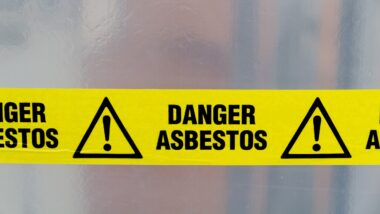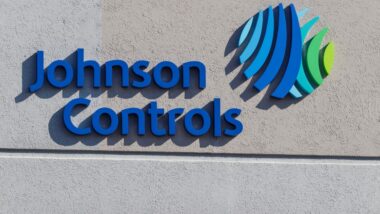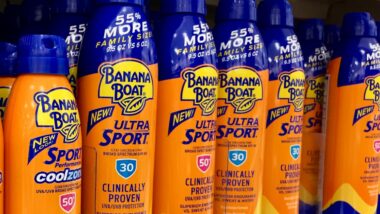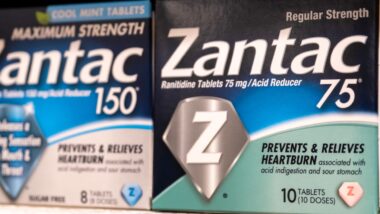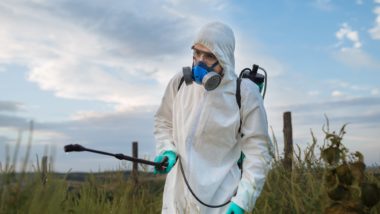Top Class Actions’s website and social media posts use affiliate links. If you make a purchase using such links, we may receive a commission, but it will not result in any additional charges to you. Please review our Affiliate Link Disclosure for more information.

Case Background
Between 1979 and 2012, Ronnie was employed by the Norfolk Southern as a switchman and conductor, working in the yards and along the rail lines between Chattanooga, Tennessee and Atlanta, Georgia. During those years, he claims he came in contact with a number of toxic substances, specifically diesel exhaust, creosote in varying amounts as well as suffering asbestos exposure. According to his complaint, the defendant either knew, or should have known, about the health risks of the various materials in question and failed to test its facilities for toxins, neglecting to warn its employees and protect them from the effects of asbestos exposure and other dangerous substances.
Specifically, the defendant stands accused of violating or failing to comply with worker protection statutes as outlined under Occupational Safety and Health Administration (OSHA) regulations and requirements of the Federal Employers Liability Act (FELA), which obligates employers to provide their employees with a “reasonably safe” workplace.
About FELA
FELA was signed into law by President Theodore Roosevelt in 1908. The purpose of the law was to protect and compensate railroad workers who suffer on the job injuries, provided they can prove that the company’s negligence was a factor in causing said injuries. It is similar to workers compensation programs, but does not have the same limitation on benefits.
Under FELA, railway companies have a duty to provide their workers with a reasonably safe work environment as well as equipment, including track, locomotives, rolling stock and any other machinery or tools used in the course of their duties. Railroads are also required to conduct regular inspections of facilities and equipment, checking for asbestos exposure and other potential hazards, as well as enforce all safety rules.
Asbestos Exposure and NHL
Asbestos is a carcinogen, known to cause lung cancer as well as mesothelioma, a deadly form of the disease affecting the visceral lining. The link between asbestos and non-Hodgkin’s lymphoma (NHL) is less clear. However, according to a review published in The Lancet in 1983, researchers have noted “significantly increased standardized mortality ratios” for lymphatic and blood cancers among workers who are routinely subject to asbestos exposure. These findings were supported by evidence showing that lymph nodes constitute a significant pathway for asbestos fibers.
Holding Them Accountable
Ronnie’s counsel says that railway conductors are routinely exposed to toxic chemicals on a daily basis and that the railroad companies do not do enough to protect them. Speaking on a local television news program, he said, “These are things that…for years and years haven’t been dealt with on the railroad. It’s the railroads’ obligation to identify these hazards, warn their people about them and take steps to prevent them.”
Ronnie is seeking $1 million in compensatory and punitive damages.
The Asbestos Exposure Lawsuit is Case No. 19C1146, Circuit Court for Hamilton County, Tenn.
Do YOU have a legal claim? Fill out the form on this page now for a free, immediate, and confidential case evaluation. The attorneys who work with Top Class Actions will contact you if you qualify to let you know if an individual railroad worker cancer lawsuit or class action lawsuit is best for you. [In general, railroad worker cancer lawsuits are filed individually by each plaintiff and are not class actions.] Hurry — statutes of limitations may apply.
ATTORNEY ADVERTISING
Top Class Actions is a Proud Member of the American Bar Association
LEGAL INFORMATION IS NOT LEGAL ADVICE
Top Class Actions Legal Statement
©2008 – 2024 Top Class Actions® LLC
Various Trademarks held by their respective owners
This website is not intended for viewing or usage by European Union citizens.
Get Help – It’s Free
Join a Free Railroad Worker Cancer Class Action Lawsuit Investigation
If you qualify, an attorney will contact you to discuss the details of your potential case at no charge to you.
PLEASE NOTE: If you want to participate in this investigation, it is imperative that you reply to the law firm if they call or email you. Failing to do so may result in you not getting signed up as a client or getting you dropped as a client.
E-mail any problems with this form to:
Questions@TopClassActions.com.
Oops! We could not locate your form.

